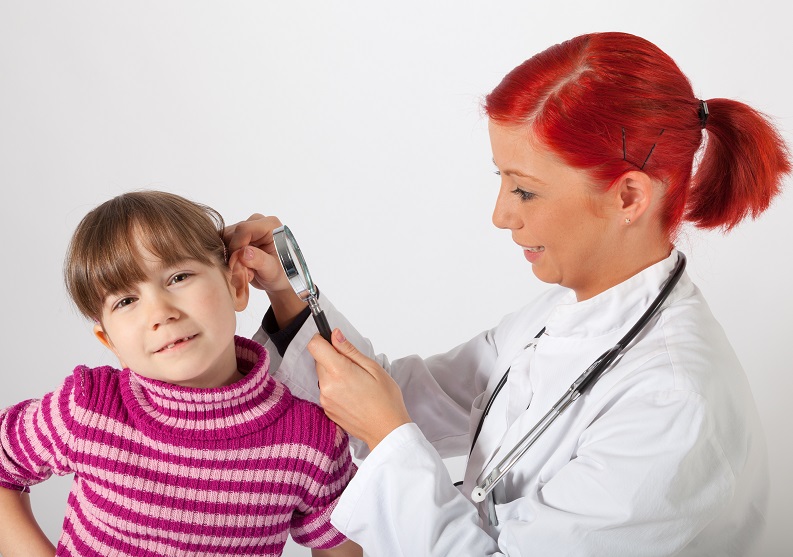Health
6 Reasons to Take Your Children to the Pediatrician
by Lisa Smith
For parents, there is nothing more important than their children’s health and wellbeing. It’s common for children to have health ups and downs, and there are numerous health issues which may or may not be serious.
If you’re wondering how to know the difference, here are 6 reasons you should probably take your children to see their pediatrician.
1). To Prevent Diseases by Boosting Immunity
One good reason to take your children to the pediatrician is to make sure you keep them updated on needed preventive measures. Thus you’ll also want to make sure they are immune against other diseases as recommended by the pediatrician.
The Families First Pediatrics in UT serves people by making sure you keep your children’s immune system stays capable of coping with potential pathogens. Natural and acquired immunity give them their best chance of good health. Diseases like pertussis, for example, can seem like very abstract, vague threats until your child comes down with the potentially deadly disease, also known as whooping cough. The clinic offers valuable advice on boosting immune system for maximum protection.
2). Monitor Their Development
As a parent, you know children’s growth is measured in terms of developmental milestones. If you’ve ever experienced anxiety about your child’s development and wondered if they were growing correctly, you’re far from alone: these anxieties are common among parents.
It’s actually a good idea to take your children to the pediatrician for precisely this reason: to make sure they’re developing in a proper and healthy fashion. If there are developmental delays, the pediatrician can seek to ascertain the cause.
In general, it’s helpful to have a sense of how your child is developing and whether or not things are going as expected.
3). Fevers
Fevers are certainly common in children, and they don’t always warrant taking your child to see the doctor. However, in some cases it is a very good idea to do this, particularly in very young children and babies.
Following the recommendations of the American Academy of Pediatrics, it is a good idea to take your child to see the doctor if:
- The child is less than 3 months and their temperature is 100.4 degrees Fahrenheit or higher
- The child is 3-6 months and the fever is 101 degrees Fahrenheit or higher
- The child repeatedly has a fever above 104 degrees or a fever that lasts more than 24 hours – at any age
- Shows other symptoms, including a stiff neck, severe headache, severe sore throat, etc.
4). Ear Infection
Ear infections are a common problem among young children, one that often develops after a cold. If your children have ear pain, tug or pull at their ears, have trouble sleeping, cry or act more irritable than usual, and have a fever of 100 degrees Fahrenheit or higher, an ear infection is the likely culprit.
According to the American Academy of Pediatrics, if your child is ages 6 to 23 months, has only mild inner ear pain in one ear for less than 48 hours, and their temperature is less than 102.2 degrees Fahrenheit, a wait-and-see approach might be reasonable. Ditto if your child is 24 months and older, has mild inner ear pain in one or both ears for less than 48 hours, and their temperature is less than 102.2 degrees Fahrenheit.
Of course, if your child exceeds these parameters or is younger than 6 months, it’s a good idea to contact a pediatrician without further delay. You may also want to contact a pediatrician even if your child falls within those parameters if your parental intuition tells you it’s serious.
5). Behavioral Issues
It is quite common for parents to run into behavioral issues with their children. These may range from challenges with learning to discipline issues to signs of mental illness.
In these situations, your pediatrician is probably a good place to start. They can interact with your child, listen to your accounts of what you have experienced, and refer you to a specialist at need.
Many behavioral issues will probably warrant a referral to a specialist, such as a psychologist, psychiatrist, or other specialist. However, your pediatrician is likely to be a good starting point. They will probably have a good idea of what type of specialist to refer your child to, saving you potentially a great deal of time, effort, and worry.
6). Coughs and Colds
Coughs and colds are common ailments, and quite often they simply go away on their own. However, if your child has a particularly nasty cough or cold, and/or one that does not seem to want to go away on its own, it’s a good idea to talk to your pediatrician.
Conclusion
If you’re a parent, you know what it is like to worry about your child’s health. Hopefully these 6 tips will give you some peace of mind and help you to know when it is advisable to take your children to their pediatrician.
Note: It is always recommended to read the complete list of any/all side/adverse effects that can possible result from medical preventive measures (for example vaccines) and drugs be they subscription or over-the-counter.
About the Author
Lisa Smith is a fitness freak as well as a health adviser. Finally, she decided to share her experience through health and fitness blog writing so that it can help the other readers around the world. She basically writes to spread the health consciousness among the audience.





